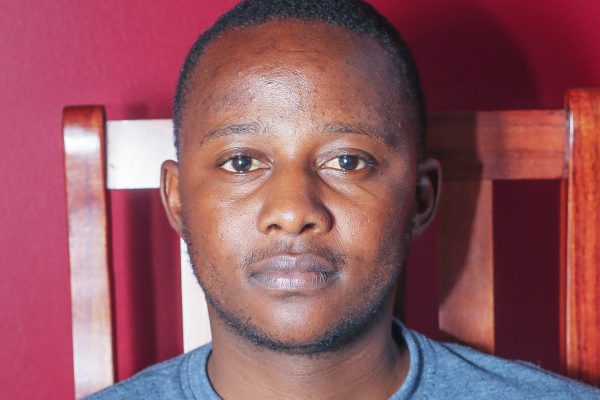
When Sekuru Maponda takes a look at his yet-to-be-harvested maize crop on his one-acre piece of land, there is unmistakable satisfaction from his facial expression.
By Kennedy Nyavaya
“The rains came late and in my mind I was convinced that it was another drought in the making. We have most of those nowadays,” he said as he explains how his gamble of not planting at the sight of the first rains last November paid off.
Climate conditions are changing fast with each passing year and mankind has been forced to adapt by changing the way altering lifestyles, especially in cases which affect day-to-day welfare and farming is one such.
Rainfall in Zimbabwe is erratic as well as ill-distributed in time and space which, according to research, results in crop failure in three out of every five years. In Zvimba South, particularly at Kazanzi Farm, peasant farmers like Maponda depend on “guess work” to determine the right time to start planting crops as the rainy seasons have become unpredictable.
Owing to scepticism and fear of losing his “expensive” maize seed as a result of increasing aridity, Maponda only took to the fields after incessant rains in the last week of December.
“This maize seed is expensive. So, it would not make sense for me to plant without any strategic planning or else I would lose it all,” he said.
Although Maponda’s good harvest story is the most ideal for any farmer, he will have to dip his hands into his pockets again next season because the hybrid seed he used cannot be replanted next season.
- Chamisa under fire over US$120K donation
- Mavhunga puts DeMbare into Chibuku quarterfinals
- Pension funds bet on Cabora Bassa oilfields
- Councils defy govt fire tender directive
Keep Reading
This is where a visible line of difference has emerged among communal farmers in modern times unlike previous years when seeds for the next season would be extracted from a previous yield.
Hybrid maize does not produce offspring resembling the parent plants, so modern farmers must purchase new seed each year, a factor which is not sustainable for most.
“I depend on the seeds sent by my children every season and had it not been the case, it would be a hard situation for me to get seeds and fertilisers,” he said.
But the past two years have not been the same as Maponda’s two sons in the city have been complaining about lack of money so if he had a choice he would revert back to the traditional hakirikinga (Hickory King) open-pollinated seeds (OPVs), which he would reuse seasonally.
“OPVs come with the advantage that farmers retain the seed and do not have to buy seeds every year,” says agronomist Ronald Rusere.
With maize being the staple grain, its production is not a choice for low-income families who depend on it for the next meal although most commercial farmers have shifted from it in favour of high-value crops such as tobacco and horticulture.
That means communal farmers are now a major component for food security in the country, but their function is under threat as a result of droughts as well as inability to constantly purchase inputs.
As a result, maize yields are very low in the smallholder farming sector because inputs such as fertilisers and seeds are either unavailable or unaffordable.
“There are areas where the level of input by farmers does not warrant the continued use of hybrid seeds,” said Rusere.
According to him, the breeding of hybrids is done for selection of traits suitable for current conditions that include drought tolerance, pest and disease resistance as well as to attain high yields.
With chemical treatment beyond reach for people like Maponda and other small-scale farmers, open-pollinated maize could be a solution, with its disease-resistant quality and ability to withstand pest attacks, if they wish to save more through avoiding chemical treatments.
Also, although susceptible to extreme conditions, OPVs are cheaper than certified hybrid seeds.
“Open-pollinated seeds can be retained and planted from season to season without suffering considerable yield depression (and) usually seed replacement is after three to four years,” Rusere said.
In addition, OPVs have a broader genetic base which offers a genetic buffering capacity to withstand stresses.
Erratic change in weather patterns has brought uncertainty on seasons and that has affected planning for farmers, in turn also affecting food security.
According to a research published by The Economic Times online publication recently, “weather extremes caused by climate change could raise the risk of food shortage globally” in more than 122 countries, Zimbabwe included.
A professor at the University of Exeter in London, Richard Betts, was quoted in the same article saying: “Climate change is expected to lead to more extremes of both heavy rainfall and drought.
“Such weather extremes can increase vulnerability to food insecurity.”
With this in mind, peasants can find a long-lasting solution to the problematic food shortages by revisiting the organic seeds which are not only cheaper, but are easier to plant.
The ability to replant seeds for years is also another advantage of traditional cultivation especially in economically disadvantaged societies around the country.
l For feedback, email: [email protected]










